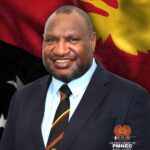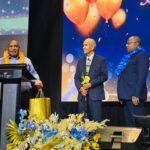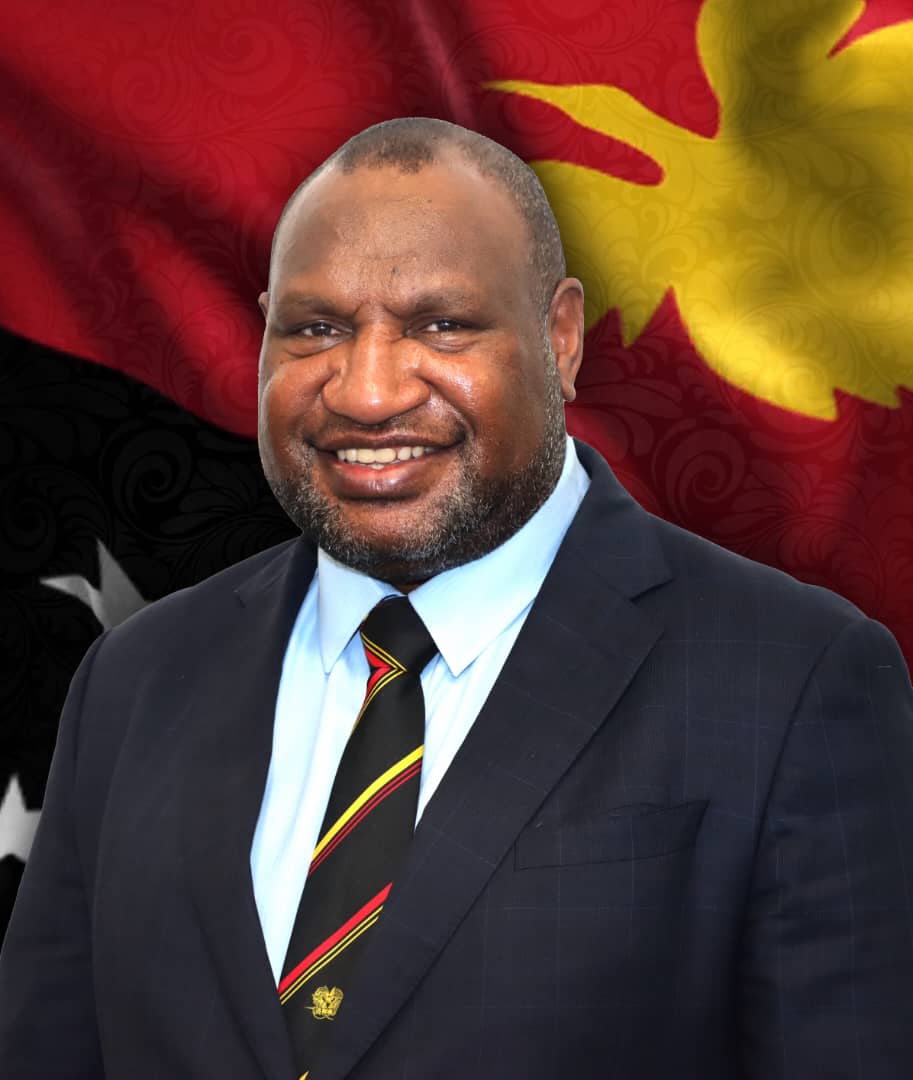Prime Minister Hon. James Marape has expressed heartfelt gratitude to the people of Papua New Guinea for coming together in unity to celebrate the nation’s 50th Independence Anniversary, describing the occasion as one of the most joyous moments of his life.
Reflecting on the week’s Golden Jubilee celebrations, Prime Minister Marape said he was deeply moved to witness Papua New Guineans rallying under one flag.
“I have lived the last 50 years and witnessed every Independence celebration since 1975. But this year, marking our 50th, was different. The joy came from deep within my heart as I saw our people, everywhere, celebrating under one flag — the Papua New Guinea flag. This truly consolidates our identity as one nation, one people, one country,” Prime Minister Marape said.
The Prime Minister noted that unlike previous celebrations, there was no display of provincial flags during this year’s milestone commemoration.
“For the first time, there was no evidence of other provincial flags. Our people came together as one under the national flag, which gave me renewed hope for our nation’s future,” he said.
He highlighted the symbolic performance by children from Bougainville, who sang songs of forgiveness, healing, and togetherness, as a powerful reminder of the higher calling of unity that the nation must embrace.
Call to Action for All Papua New Guineans
Prime Minister Marape urged Papua New Guineans not to confine their sense of patriotism to Independence
Day alone.
“There is always a 17th of September, an 18th of September, and all the days that follow. Independence is not just about the 16th — it is about what we do afterwards. The pride we felt must propel us into hard work for our country,” he said.
He appealed to two groups of citizens:
• The 99% of ordinary Papua New Guineans
“Each of us must do our part. As one young citizen, Sophia Warep of PAU reminded us — it is not only for the 1% of politicians and public servants to carry the nation, but for the 99% to also do their part,” Prime Minister Marape said.
• The 1% of politicians and public servants
“I appeal to that 1% who occupy public service and political positions. We consume almost 25% of our country’s annual allocation in salaries alone. Wherever you are, whatever your position, let us work together, faithfully and diligently, for our people. If we expect our citizens to follow the law, then we too, as leaders and public servants, must set the example by following the law.”
Key Reset Reforms Announced
Prime Minister Marape outlined a series of major reforms to drive PNG forward in the next decade, describing them as part of the “50th Anniversary Reset”:
• Meritocracy and AI in Governance
• Adoption of artificial intelligence and computer-based systems to remove the “wantok system” and ensure merit-based processes.
• Public service recruitment, contractor selection, and procurement will be handled by transparent digital systems, not personal preferences.
• “Nations like Singapore grew on meritocracy. We must now cut loose the wantok system and replace it with a system where the best person gets the job, and the best contractor delivers value for money,” the Prime Minister said.
• Land Reform and Credit Access
• A new 49-year lease-and-loan scheme to monetise customary land and give traditional landowners access to credit.
• The scheme, grounded in biblical principles from Leviticus 25, will allow landowners to use their land as collateral through a new national bank facility.
• Landowners could access soft loans of K10,000–K20,000 for agriculture, cottage industries, tourism, and small business ventures.
“One of the greatest blessings of our Constitution is that 97% of land remains in the hands of our people. Now, we will link land ownership to credit facilities so that one million families can transition from subsistence to commercial agriculture. This will unlock economic opportunities for our people like never before,” the Prime Minister said.
• Resource Ownership and Management
• New policies on fisheries, forestry, agriculture, SMEs, and tourism to reserve key opportunities for Papua New Guineans.
• Clearer terms on resource projects in mining and petroleum to ensure maximum national benefits.
• Law and Justice Sector
• Expansion of police numbers to 10,000 and the PNGDF to 7,000 by 2035.
• Comprehensive reforms to correctional services, including parole and pardon systems.
• Introduction of world-class mediation and arbitration processes in the courts.
• Education
• A national focus on Christian-based values and character education at early childhood, primary, and high school levels.
• Flexible Open and Distance Education (FODE) expanded nationwide so that no child or youth is left behind.
• Grade 12 certification to become the baseline qualification for work or further studies, with pathways into SMEs, tertiary education, and the disciplined forces.
• Expanded opportunities for PNG students and workers to join the Australian and New Zealand workforce, under recognition of PNG qualifications.
• Health
• Commitment to ensure every Papua New Guinean has access to a health facility within one hour’s reach — by foot, vehicle, or air.
• Foreign Relations and Trade
• Strengthening of foreign partnerships, with a focus on trade, commerce, and market access for PNG products.
• Emphasis on PNG’s role as a major forest and ocean nation, vital to global climate solutions.
• Expanded seasonal and permanent labour opportunities for Papua New Guineans in Australia and New Zealand.
Vision for 2045
Prime Minister Marape concluded with a personal vision for Papua New Guinea’s future:
“By 2045, when Papua New Guinea marks 70 years of independence, I want to see our country as a developed nation. That is my aim in life — simple as that. Together, we can build a bigger, better country for our children and their children.”
He also called on his generation — those born in the 1960s and 1970s who now occupy senior leadership roles — to lead by example and instill the right values in the younger generation.
“Our children lifted the flag proudly this weekend. Now it is up to us — the elders of this nation — to pass on the right values and work ethic. When the young see us working hard, they too will rise to their responsibility,” Prime Minister Marape said.






